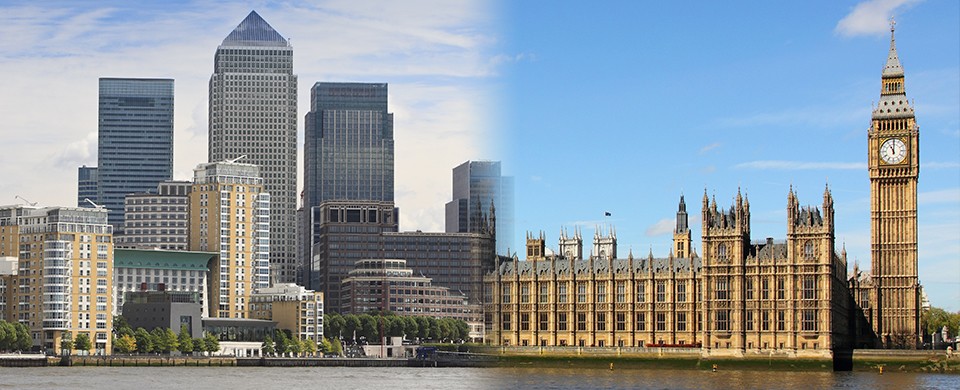Small businesses are part of the communities in which they are based
In one square mile of the United Kingdom, the election result evidently went down particularly well. With shares already trading at a record high, the FTSE250 increased nearly 3% on Friday as David Cameron walked into Downing Street.
But, as many commentators have noted, it was an election that left more questions than answers. How much leverage will Tory backbenchers now have over decisions on Europe? Would challenging the legitimacy of the SNP irretrievably alienate Scotland? How will George Osborne pay for promised tax cuts?
The outcome, though not deadlocked as the polls had suggested, was still tight by normal standards. Labour increased its 2010 vote by 701,845 compared to a rise of 463,341 for the Tories, but the ‘swing’ to Labour was not enough to produce the predicted hung parliament.
And, besides, the swing-o-meter – which was invented in the 1960s when 98% of the electorate voted either Tory or Labour – was incapable of analysing voting migrations in an era of multiple parties.
Labour’s vote was undoubtedly buoyed by some returning Liberal Democrats and its large lead among the under 24s, but it was annihilated in Scotland by the SNP and eroded elsewhere by the Greens and UKIP.
At one stage on Friday, Nigel Farage said ‘the narrative that UKIP takes Tory votes’ had been ‘blown out of the water’.
It had indeed. In seats where it was between the two main parties, the Tory vote held up well, while Labour was undermined by UKIP’s exploitation of working class fears on immigration.
At the same time, among the more economically secure, Labour had failed to make much headway in convincing voters it had a better way to tackle the deficit.
That was always going to be an uphill task because, in seeking to distance itself from the past, Labour had not vigorously combated claims that Gordon Brown’s government had not been tough enough on public spending and was to blame for the deficit.
That idea became so entrenched that by the time Ed Miliband tried to refute it in one of the debates he was laughed down by an incredulous audience.
And yet the facts support Miliband. The National Audit Office says the bail-out of the banks cost a staggering £1,162 billion – more than double the entire central government budget. That was by far the biggest factor in the increase in national debt – dwarfing spending on schools and the NHS.
It’s true, of course, that Labour had deregulated the City. But this was also Tory policy and not criticised at the time by George Osborne. No one then had an inkling that behind the respectable facades of the giant banks spivs and incompetents were creating a disastrous moral hazard.
The collapse of Lehman Brothers in September 2008 set off a chain reaction of bank failures that sent the economy into freefall. Had Brown hit the spending brakes too abruptly at that point the recession would have plumbed unimaginable depths.
I am not of the Brown-saved-the-world school of history, but I do not think he had much room for manoeuvre – and that needed to be spelt out much earlier.
Once the election campaign was underway, Labour was almost defenceless against Tory accusations they would ‘wreck’ the economy.
By the week of the election, Miliband seemed so at odds with business that BBC deputy political editor James Landale asked him if he actually knew anyone who ran a business.
Yet Labour does have considerable support among business owners and entrepreneurs. Most people running SMEs do not have the telephone number earnings of the career executives at FTSE250 companies.
Our businesses are part of the communities in which they are based, employing people we live alongside and often count as friends.
Of course we know how to make a profit – those are the rules of the game – but many of us also recognise the value of public services and the importance of looking after the most vulnerable.
In the last five years, the wealth of the richest 1,000 increased 63% from £335bn to £547bn, while almost everyone else experienced the first sustained fall in living standards since Victorian times.
The Tories have a majority in Parliament with only 36% of the vote. The City may be pleased, but are these deep divisions really that good for business?
This article is Steve’s monthly business column for Walesonline and the Western Mail newspaper.
Steve Howell is also the author of Over The Line, a novel telling the story of a coach whose star athlete becomes embroiled in a drugs controversy.
Follow him on Twitter @fromstevehowell Over The Line is available on Kindle via Amazon and in paperback at Waterstones, W H Smith and other bookshops or via this website – ORDER.

